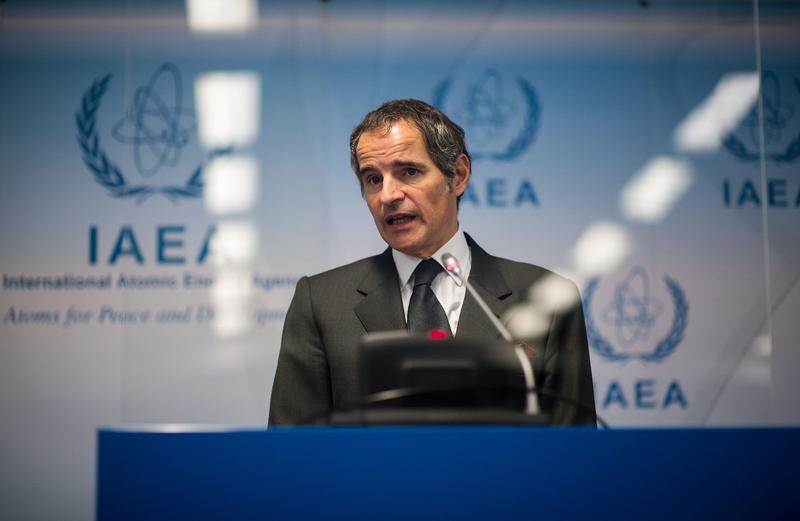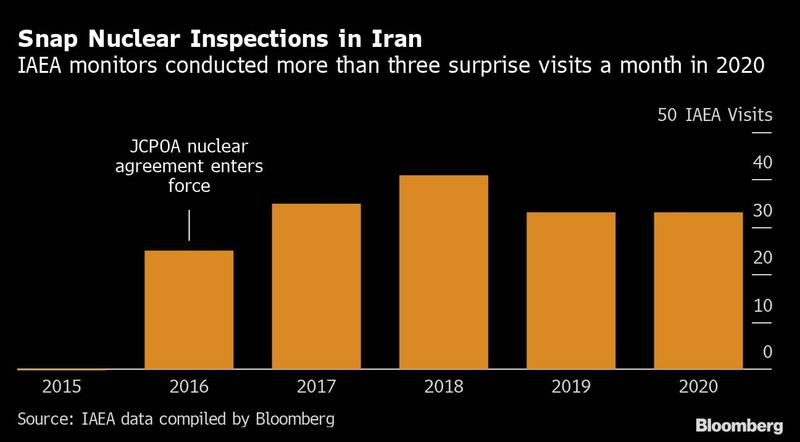 This undated file photo shows International Atomic Energy Agency Director General Rafael Mariano Grossi. (MICHAEL GRUBER / BLOOMBERG)
This undated file photo shows International Atomic Energy Agency Director General Rafael Mariano Grossi. (MICHAEL GRUBER / BLOOMBERG)
Iran’s talks with world powers over reviving their nuclear accord are entering a “decisive phase,” the agency monitoring Tehran’s atomic sites said, warning that failure to reach an agreement could have perilous consequences for its work.
Diplomats will reconvene this week in the Austrian capital for a sixth round of talks aiming to resurrect a 2015 accord that capped Iran’s nuclear activities in exchange for lifting sanctions. The possibility of a deal has traders anticipating a potential flood of Iranian oil exports in the second half of the year.
Diplomats will reconvene this week in the Austrian capital for a sixth round of talks aiming to resurrect a 2015 accord that capped Iran’s nuclear activities in exchange for lifting sanctions
Commenting on the status of discussions to which he isn’t a party, International Atomic Energy Agency Director General Rafael Mariano Grossi told reporters Monday in Vienna that his inspectors might have access in Iran further reduced when a temporary monitoring pact expires June 24.
“It’s becoming increasingly difficult,” said the Argentine diplomat. “What’s going on is serious. We have to be aware of this. We cannot limit and continue to curtail the ability of inspectors to inspect and at the same time pretend there is trust.”
ALSO READ: Iran says main issues with US in Vienna nuke talks settled
Negotiators adjourned last week with the US and Iranian delegations told they’d have to make hard decisions that could ruffle domestic political constituencies. Envoys departed Vienna to return to their capitals over the weekend, where leaders were to decide on next steps.
IAEA inspectors play a central role in enforcing the deal, which gave them wide access to facilities and scientists across the country. They conducted a record number of snap inspections in recent years, and erected a dense network of cameras, seals and monitoring technologies to alert them if nuclear material is diverted for non-peaceful purposes.
“The IAEA is not only in the middle, it’s in the center of the safeguards process,” Grossi said. “The times require extreme clarity of what is going on.”

In response to former US President Donald Trump’s decision to abandon the 2015 deal and reinstate U.S. sanctions three years ago, Iran began to gradually ramp up its nuclear activities and restrict monitoring, both in contravention of the agreement, which also includes China, France, Germany, Russia and the UK.
READ MORE: IAEA: Iran failed to explain uranium traces at several sites
Grossi reiterated that Iran isn’t cooperating with an IAEA inquiry into decades-old man-made uranium particles detected at several undeclared sites. His agency is having discussions with Iranian Vice President Ali Akbar Salehi about clarifying the investigation but wants Iran to move quicker.
“Talk must lead to conclusions,” Grossi said.


